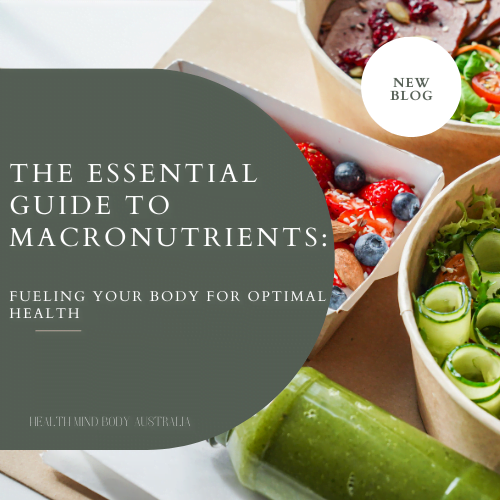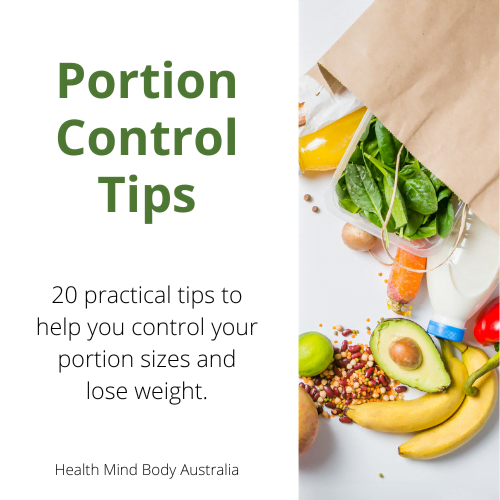Understanding the Power of Calorie Deficit: A Key to Effective Weight Management
Note: This is not intended as professional medical advice. Always consult a healthcare provider before making significant changes to your diet or exercise routine.
In the world of fitness and nutrition, one term that frequently takes center stage is “calorie deficit.”
It’s a concept that forms the cornerstone of effective weight management.
In this article, we’ll delve deep into what a calorie deficit is, why it matters, and how you can incorporate it into your wellness journey.

What is a Calorie Deficit?
A calorie deficit is a state where you consume fewer calories than your body utilises.
Put simply, it’s the foundation of weight loss.
When you’re in a calorie deficit, your body turns to stored fat for energy, leading to a reduction in overall body fat percentage.
Understanding Calorie Deficit in Detail
At its core, a calorie deficit is a fundamental principle of energy balance in the context of weight management.
It’s based on the simple premise that for weight loss to occur, you must burn more energy – calories, than you consume.
Energy Balance
Your body is constantly burning energy, even when at rest.
This energy is used for essential bodily functions like breathing, circulation, and cell repair.
The number of calories your body needs to maintain its current weight is known as the maintenance calories.
This is influenced by factors such as age, gender, weight, height, and activity level.
Creating a Calorie Deficit
To initiate weight loss, you consume fewer calories than your body requires.
This creates an energy deficit.
In response to this deficit, your body seeks additional energy from its energy stores, primarily fat.
This is where the reduction in body fat percentage occurs.
The Role of Stored Fat
When in a calorie deficit, your body goes through a process called lipolysis.
This is where stored fat molecules are broken down into fatty acids and glycerol, which can be used for energy.
These fatty acids are then transported through the bloodstream and taken up by cells to be used as fuel.
Adaptations to Calorie Deficit
As you continue in a calorie deficit, your body might undergo some metabolic adaptations.
It may become more efficient in utilising energy and might slow down certain bodily processes to conserve energy.
Gradual Progression
Sustainable weight loss through a calorie deficit is typically gradual.
A common guideline is aiming for a deficit of 500-1000 calories per day, which can lead to a weight loss of about 0.5-1 kg (1-2 lbs) per week as mentioned on the Mayo Clinic Website.
Balancing Nutritional Needs
While it’s crucial to create a calorie deficit for weight loss, it’s equally important to meet your body’s nutritional needs.
This means ensuring you get a balanced intake of macronutrients including:
- Carbohydrates,
- Proteins,
- Fats, and
- Micronutrients (vitamins and minerals).
Potential Challenges and Considerations
Maintaining a balanced calorie deficit is crucial for effective and sustainable weight loss.
Striking a balance between achieving weight loss goals and safeguarding overall health is of paramount importance.
Avoiding Extreme Deficits
While a calorie deficit is essential for weight loss, extremely low-calorie diets can lead to nutrient deficiencies and other health issues.
It’s crucial to strike a balance that supports both weight loss and overall health.
Individual Variations
Each person’s metabolism is unique, and the rate at which you lose weight in a calorie deficit can vary.
Factors like genetics, hormone levels, and overall health play a role.
Monitoring Progress
It’s important to keep track of your progress, not just in terms of weight on the scale, but also through measurements, body composition assessments, non-scale victories, and how you feel overall.
The Science Behind It
Calories are units of energy that our bodies use to perform various functions, from breathing to exercising.
When you consume fewer calories than your body needs, it taps into its fat stores to make up the deficit.
For instance, if your body requires 2,000 calories a day to maintain its current weight, and you consume 1,800 calories, you’re in a deficit of 200 calories.
Over time, this deficit leads to weight loss.
Creating a Calorie Deficit
Below are a few ways you can create a calorie deficit in your routine:
Balanced Diet
A balanced diet is the cornerstone of creating a calorie deficit that supports sustainable weight loss.
Here’s a closer look at the components:
Nutrient-Dense Foods
Prioritise foods rich in essential nutrients like lean proteins, whole grains, fruits, and vegetables.
These options are not only packed with vitamins, minerals, and fibre, but they also offer sustained energy, reducing the likelihood of energy spikes and crashes.
Lean Proteins
Include sources like poultry, fish, legumes, and tofu.
These are not only high in protein, which supports muscle maintenance and growth, but they also tend to be lower in calorie density compared to fatty meats.
Whole Grains
Opt for whole grains like brown rice, quinoa, and whole wheat bread.
They’re rich in fibre, providing a sense of fullness and steady energy release.
Fruits and Vegetables
These are nutrient powerhouses.
They’re low in calories but high in fibre, vitamins, and minerals.
They also add volume to meals, contributing to a feeling of satiety.
Healthy Fats
Include sources like avocados, nuts, seeds, and olive oil.
While they’re more calorie-dense, they’re also essential for overall health and help with satiety.
Limit Processed Foods
Minimise your intake of highly processed foods, which often contain excess sugars, unhealthy fats, and empty calories.
These can hinder your progress towards a calorie deficit.
Portion Control
Controlling portion sizes is a pivotal aspect of maintaining a calorie deficit without feeling deprived.
Here’s how to approach it:
Mindful Eating
Pay close attention to portion sizes and avoid mindless eating.
Eating slowly and savouring each bite can help you recognise when you’re satisfied.
Smaller, Frequent Meals
Instead of three large meals, consider having smaller, balanced meals spread throughout the day.
This can help stabilise blood sugar levels and keep hunger at bay.
Use Smaller Plates and Bowls
Opt for smaller dishware, as it can visually trick your brain into thinking you’re eating more than you actually are.
Listen to Hunger Cues
Pay attention to your body’s hunger and fullness signals.
Stop eating when you’re satisfied, not when you’re overly full.
Tracking Calories
Keeping tabs on your calorie intake provides valuable insights into your dietary habits and ensures you’re staying within your targeted deficit.
Here’s how to approach calorie tracking:
Utilise Tracking Tools
Apps and websites like MyFitnessPal are powerful tools that can help you log your meals, track your macronutrient intake, and monitor your progress over time.
Accurate Measurements
When tracking, be as accurate as possible with portion sizes and ingredient quantities.
This ensures your calorie count is as precise as possible.
Record Everything
Don’t forget to record your intake of foods, beverages, condiments, and cooking oils.
These can sometimes be overlooked but contribute to your overall calorie intake.
Be Mindful of Hidden Calories
Some foods may seem harmless but can be calorie-dense.
For example, dressings, sauces, and snacks can add up quickly.
Benefits of a Calorie Deficit
Let’s dive deeper into the benefits of a calorie deficit:
Weight Loss
The primary and most apparent benefit of a calorie deficit is weight loss.
When you consistently consume fewer calories than your body expends, it taps into its stored fat for energy.
This leads to a reduction in overall body fat percentage and, consequently, a decrease in body weight.
Sustainable and Healthy
Unlike crash diets or extreme measures, a calorie deficit achieved through balanced nutrition and gradual changes is a sustainable approach to weight loss.
It allows your body to adapt to changes over time, reducing the likelihood of regaining lost weight.
Preserves Lean Muscle Mass
When combined with a balanced diet and regular exercise, a calorie deficit can help preserve lean muscle mass.
This is crucial for maintaining metabolic health and achieving a toned, healthy physique.
Improved Metabolic Health
A calorie deficit, when coupled with nutritious food choices, can have profound positive effects on various aspects of metabolic health:
Better Blood Sugar Control
By regulating your calorie intake and choosing nutrient-dense foods, you can help stabilise blood sugar levels.
This is especially important for individuals with or at risk of developing insulin resistance or type 2 diabetes.
Reduced Inflammation
Nutrient-dense foods like fruits, vegetables, and whole grains are rich in anti-inflammatory compounds.
When incorporated into a calorie deficit, they can help reduce overall inflammation levels in the body.
Improved Cholesterol Levels
A balanced diet that supports a calorie deficit often includes heart-healthy fats, fibre, and plant-based foods.
These elements can contribute to lower cholesterol levels, reducing the risk of heart disease.
Enhanced Physical Performance
Carrying excess weight can place strain on joints, muscles, and cardiovascular health.
Achieving a calorie deficit and shedding those extra kilos can lead to notable improvements in physical performance:
Increased Stamina
Carrying less body weight can lead to enhanced endurance and stamina.
Activities like walking, running, and even day-to-day tasks become less physically demanding.
Improved Fitness Levels
As excess weight decreases, you’ll find it easier to engage in physical activities.
This opens the door to a wider range of exercises and fitness routines, ultimately contributing to an overall improved level of fitness.
Reduced Risk of Injuries
Carrying less weight puts less strain on joints and muscles, reducing the risk of injuries during physical activity.
By incorporating a calorie deficit into your lifestyle, you’re not only working towards achieving a healthier body weight but also promoting better metabolic health and enhancing your physical capabilities.
Remember, it’s important to approach a calorie deficit in a balanced and sustainable manner, prioritising nutrient-dense foods and regular exercise.
Always consult with a healthcare provider or a registered dietitian before making significant changes to your diet or exercise routine.
Safety First
While a calorie deficit is a powerful tool for weight management, it’s crucial to approach it with caution.
Extreme deficits or rapid weight loss can have adverse health effects.
Consulting a healthcare provider or a registered dietitian before making significant changes to your diet is always a wise step.
In my personal opinion, the safety and well-being of yourself should always be the top priority when embarking on any weight management journey.
It’s important to remember that achieving sustainable and lasting results often requires a gradual and balanced approach.
Seek professional guidance to ensure that the steps you’re taking are not only effective but also safe for your overall health.
Final Thoughts – Understanding the Power of Calorie Deficit
In the pursuit of a healthier, fitter you, understanding and harnessing the power of a calorie deficit is key.
This foundational principle of expending more energy than you consume forms the bedrock of effective weight management.
However, it’s crucial to approach this journey with wisdom and care.
A balanced diet, focused on nutrient-dense foods like lean proteins, whole grains, fruits, and vegetables, lays the groundwork for success.
Portion control and mindful eating ensure that you’re meeting your body’s needs without overindulging.
Tracking your calorie intake provides a tangible measure of progress and helps maintain accountability.
The benefits of a calorie deficit extend far beyond just shedding kilos.
It leads to improved metabolic health, stabilising blood sugar levels, reducing inflammation, and enhancing cholesterol profiles.
Additionally, shedding excess weight paves the way for increased physical performance, heightened stamina, and a reduced risk of injuries.
Yet, amidst this journey towards transformation, the wisdom of “Safety First” should always prevail. Extreme deficits or rapid weight loss can have unintended health consequences.
Seeking guidance from a healthcare provider or registered dietitian is a prudent step.
Their expertise ensures that you’re embarking on this path in a way that is both effective and safe for your unique health profile.
In my personal opinion, your health and well-being should always be the primary focus.
Remember, this is not a race, but a journey towards a healthier, happier you.
Celebrate every milestone, no matter how small, and embrace the process with patience and perseverance.
By blending determination with caution, and by prioritising your health above all else, you’re poised to unlock the full potential of a calorie deficit in your journey towards a better you.
I’m on a mission to share every bit of wisdom I’ve gained along the way. No fancy gimmicks, no unrealistic expectations – just practical tips and recommendations that come straight from my own experiences. Because I know firsthand how tricky it can be to balance a bustling household with self-care and wellness goals.
Follow me for regular updates, heartfelt stories, and product suggestions that have been tried and tested in my own life. Instagram @Keto_Balanced_Lifestyle.
Amy xx
This page contains affiliate links. If you choose to make a purchase after clicking a link, I may receive a commission at no additional cost to you.







- Accountability in Weight Loss: The Importance of Accountability
- 28 Day Challenge – No Time for Dieting – The Healthy Mummy
- 5 Lessons Learned in Weight Loss: Insights from a Personal Journey
- Plant Based Keto Lifestyle
- Importance of Fitness Routines for Busy Mums


